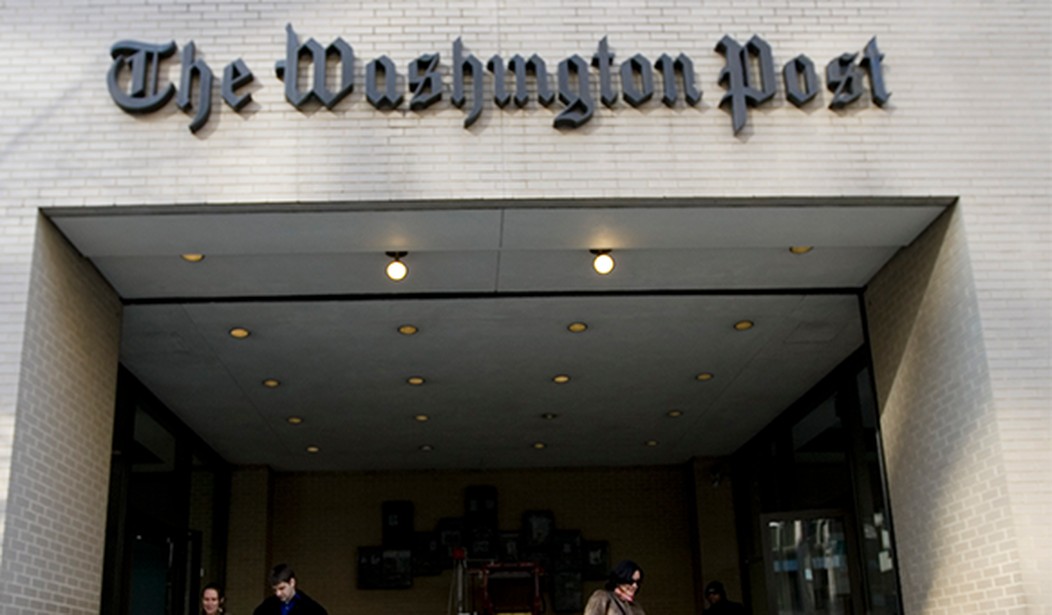As Matt highlighted on Wednesday, CBS News got wrecked for blaming the nation's economic woes on the Ukraine crisis, completely missing the timeline on how long the American people have been dealing with rising inflation and high gas prices. Well, The Washington Post has now joined in. If possible, this piece that took three writers as well as more contributors, comes off as even more whiny, and it's not even in the opinion section, either. "U.S. economy appeared ready to surge, but Russia’s invasion of Ukraine could send shockwaves," they whine in a piece published Friday morning.
According to the piece's opening:
A few weeks ago, the coronavirus’s fading omicron variant, falling gas prices, and a newly buoyant stock market set the table for what many felt could be a surging U.S. economy in 2022.
But those rosy scenarios are suddenly in doubt, as rampant geopolitical uncertainty has helped drive up energy prices and send global markets on a roller-coaster ride. These changes could give many consumers and businesses pause and put more pressure on Washington leaders to respond, even though it is unclear how exactly they will intervene.
Even such a report, though, references the economic woes the country is and already has been facing, though it doesn't appear until several paragraphs in:
Average prices at the pump reached $3.54 per gallon on Thursday, almost a dollar more than they were at the same time last year, according to AAA (and up from their $3.33 per-gallon price one month ago). Benchmark prices of other exports from Russia and Ukraine, such as wheat and corn, climbed to multiyear highs.
For many Americans, those price increases are piling onto inflation that has already skyrocketed to 40-year highs. Inflation data from January showed that the energy index rose 27 percent compared with the year before.
...
The geopolitical turmoil adds a heavy dose of uncertainty to a recovery that is already without a playbook.
Economists say the crisis could exacerbate supply chain disruptions and create new headaches for farmers, manufacturers and others across the economy. Ukraine is a major exporter of fertilizer, as well as wheat, corn, and sunflower and grapeseed oils. It is also a large source of neon gas, and it supplies the United States with about 40 percent of its semiconductor-grade neon, according to research firm Techcet.
Recommended
Those problems were already occurring even before Russia invaded Ukraine. Such a dose of reality surely pours cold water on those claims of "rosy scenarios" made to open the piece.
The tweet from The Washington Post sharing the article was massively ratioed, with 727 replies and 182 likes, as of Friday night. Of the 322 retweets, 257 of them were quote tweets mocking the article.
U.S. economy appeared ready to surge, but Russia’s invasion of Ukraine could send shockwaves https://t.co/e5Zxjh2x6I
— The Washington Post (@washingtonpost) February 25, 2022
Vikings as well. They were right on the brink of NFL dominance.
— MauertheBulldog (@BullyMaus) February 25, 2022
@DNC media to the rescue!!!!!!! pic.twitter.com/WmCSq7j3oI
— Tony FJB Bruno (@TonyBrunoShow) February 25, 2022
Our friends at Twitchy highlighted how people were quick to point out the utter nonsense of the article.
Is this satire?
— Joe Becerra (@JoeBecerra_) February 25, 2022
Outright gaslighting from the Washington Post here, claiming gas prices were falling prior to Ukraine.
— Mike Palicz (@Mike_Palicz) February 25, 2022
Gas prices increasing for 8 straight weeks, now avg $3.62/gallon according to @EIAgov. Gas at $2.46 when Biden took office, hit $3.50 in Nov. before any Russian troop movements https://t.co/mDvO0mkgv2 pic.twitter.com/w4D0olprZZ
The news outlet isn't the only one claiming the economy is doing well. Democrats and the Biden administration have also tried to sell such a talking point to the American people. Some numbers are on Biden's side, such as the low unemployment rate of 4 percent.
The American people though, are rightfully concerned about inflation, which is at a 40-year high, having jumped 7.5 percent last month from the previous year, as Spencer highlighted earlier this month. Gas prices, as Spencer also covered earlier this month, are at their highest since 2014.
Not only are Americans concerned with inflation, it's considered the top issue according to a Quinnipiac poll released on February 16, with 27 percent of respondents saying as much.
Other polls have shown Biden facing blame for inflation as well, such as a January Fox News poll, which found 85 percent of voters are worried about inflation, including 81 percent of Democrats and 91 percent of Republicans. A plurality of voters, by 48 percent, blame government policies, while 42 percent blame the pandemic.
A poll from Morning Consult/POLITICO from last November found that 62 percent of voters believe the Biden administration is "very responsible (42 percent)" or "somewhat responsible (20 percent)," including 46 percent of Democrats.
And, as Leah covered last November, a Yahoo News/YouGov survey released at that time similarly showed 57 percent of Americans blame Biden for inflation.
A RealClearPolitics (RCP) average for polls conducted from January 10-February 22 shows that Biden has a 37.5 percent approval rating on the economy and a 58.3 percent disapproval rating on the issue.

























Join the conversation as a VIP Member